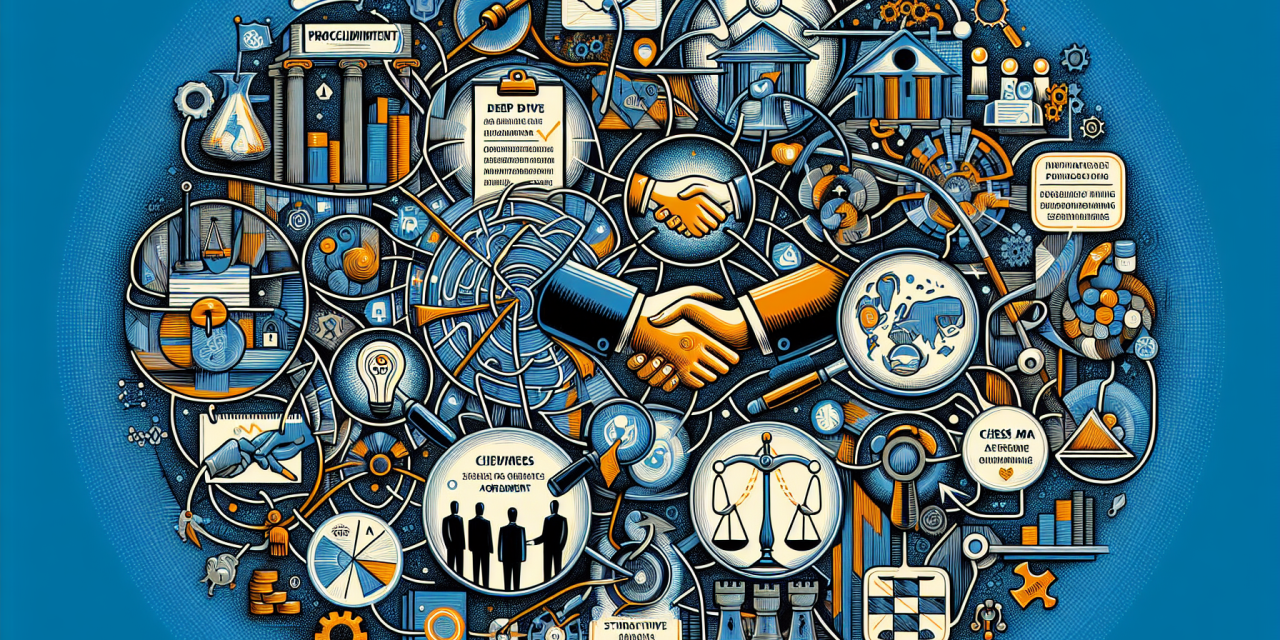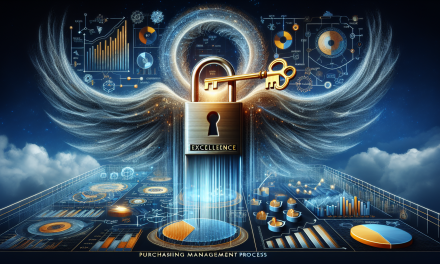Table of Contents
- Introduction
- Understanding the Role of a Strategic Buyer
- Key Skills and Competencies
- Strategic Sourcing and Procurement
- Negotiation Techniques
- Relationship Management
- Sustainability in Procurement
- Future Trends in Procurement
- Frequently Asked Questions
- Conclusion
Introduction
In today’s fast-paced business environment, understanding the dynamics of procurement can significantly impact a company’s bottom line. Furthermore, strategic buyers play a pivotal role in optimizing costs, managing suppliers, and ensuring that goods and services meet the organization’s needs efficiently. Exploring the essence of strategic buyer procurement not only enhances operational effectiveness but also empowers individuals to drive innovation within their organizations.
Understanding the Role of a Strategic Buyer
A strategic buyer navigates the complex world of sourcing and purchasing. In essence, they act as the bridge between the organization and its suppliers, ensuring that the procurement process aligns with the overall business strategy. Consequently, their responsibilities extend beyond mere purchasing; they involve analysis, planning, and building relationships that sustain profitability and efficiency.
The Importance of Strategic Buying
What distinguishes a strategic buyer from a traditional purchasing agent? Essentially, a strategic buyer focuses on long-term outcomes rather than short-term gains. By analyzing market trends and supplier capabilities, they possess the ability to forecast needs, negotiate contracts, and identify opportunities for cost reduction and value maximization. Therefore, their role is instrumental in fostering a sustainable competitive advantage.
Key Skills and Competencies
To excel as a strategic buyer, one must cultivate a diverse skill set. Below are some vital competencies that distinguish successful strategic buyers:
Analytical Skills
Strategic buyers leverage analytical skills to assess market conditions and supplier performance. By understanding data trends, they can make informed decisions that align with the organization’s objectives. For example, performing spend analysis enables buyers to uncover areas for savings and optimize supplier partnerships.
Negotiation Skills
Effective negotiation is crucial in procurement. A strategic buyer must navigate discussions with suppliers to secure favorable conditions. This includes price reductions, better payment terms, and quantity discounts. Developing strong negotiation skills not only benefits the organization financially but also builds robust supplier relationships.
Communication Skills
Communication plays a key role in effective procurement. Strategic buyers must articulate requirements clearly and maintain open lines of communication with suppliers. Furthermore, effective communication fosters collaboration, which can lead to innovative solutions and improved supply chain dynamics.
Relationship Management
Building and maintaining relationships with suppliers is another vital aspect of a strategic buyer’s role. By establishing trust and mutual respect, strategic buyers can create long-lasting partnerships that enhance product quality and reliability.
Strategic Sourcing and Procurement
Strategic sourcing extends beyond purchasing and focuses on the entire sourcing process. It entails evaluating suppliers, assessing risks, and identifying the best sourcing strategies. To be effective, strategic buyers must understand the entire supply chain, from raw materials to finished products.
The Sourcing Process
The sourcing process involves several steps that strategic buyers must navigate:
- Market Research: Gathering information about potential suppliers and market conditions.
- Supplier Evaluation: Assessing suppliers based on performance, reliability, and capacity.
- Request for Proposal (RFP): Sending RFPs to shortlisted suppliers to invite bids.
- Negotiation: Engaging in discussions to finalize terms and conditions.
- Contract Management: Overseeing contracts to ensure compliance and performance.
Negotiation Techniques
Negotiation remains one of the cornerstones of strategic procurement. Utilizing effective techniques can lead to better outcomes for both parties.
Preparation and Planning
Preparation is essential. Before engaging in negotiations, strategic buyers should analyze their objectives and identify acceptable limits. Understanding the supplier’s position helps in crafting mutually beneficial agreements.
Win-Win Approach
A collaborative approach often yields the best results. By focusing on creating value for both parties, strategic buyers can foster long-term relationships rather than temporary gains. Therefore, utilizing a win-win negotiating style not only enhances trust but also leads to ongoing collaboration.
Relationship Management
Relationship management goes hand in hand with negotiation. A strategic buyer’s role involves nurturing supplier relationships through communication and collaboration.
Building Trust and Collaboration
Being transparent and honest in dealings helps establish trust. Collaborative efforts can lead to innovative practices that enhance efficiency and reduce costs. Regular meetings and progress reviews foster open communication and address any arising issues promptly.
Sustainability in Procurement
In recent years, sustainability has gained significant traction in procurement. Strategic buyers are increasingly expected to consider environmental and social factors when making purchasing decisions.
Green Procurement Practices
Implementing green procurement practices not only enhances corporate responsibility but also offers competitive advantages. For example, sourcing from suppliers that prioritize sustainable practices can lead to reduced environmental impact and increased consumer loyalty.
Future Trends in Procurement
As the market evolves, so do the responsibilities and strategies of strategic buyers. Emerging trends such as technology integration, data analytics, and supplier diversity are reshaping the landscape of procurement.
Technology Integration
Advancements in technology provide strategic buyers with tools to enhance efficiency. From e-procurement systems to AI-driven insights, embracing technological solutions can streamline processes and improve decision-making capabilities.
Data-Driven Decision Making
Utilizing data analytics enables buyers to make informed decisions based on market trends and supplier performance metrics. By adopting a data-driven approach, strategic buyers can optimize sourcing strategies and anticipate market fluctuations.
Frequently Asked Questions
What is the main difference between traditional purchasing and strategic procurement?
Traditional purchasing focuses on transactional activities, while strategic procurement emphasizes long-term relationships and alignment with business goals.
How can I improve my negotiation skills as a buyer?
Improving negotiation skills requires practice and preparation. Engaging in role-play scenarios, studying negotiation techniques, and seeking feedback can all contribute to skill enhancement.
Why is sustainability important in procurement?
Sustainability in procurement enhances the company’s brand reputation, aligns with consumer expectations, and minimizes environmental impact.
Where can I learn more about strategic buying?
For a deeper understanding of buyer roles and strategies, consider exploring Strategic Buyer Procurement Training: Mastering Buyer Roles. This resource provides extensive insights into developing strategic purchasing skills.
Conclusion
Mastering the art of strategic procurement equips individuals with essential skills to thrive in the procurement landscape. Through analytical thinking, effective negotiation, and sustainability awareness, strategic buyers can significantly influence their organizations’ success. Thus, by investing in developing these skills, professionals position themselves for career advancement and organizational impact. Moreover, if you’re eager to expand your knowledge further, check out resources such as Maximizing Your Potential with a Purchasing Management Mini-Master Journey, Unlock Your Potential: Enhance Your Skills in Purchasing Management, Unlocking the Power of Supply Chain and Inventory Management for Business Growth, Unlocking the Secrets of Effective Logistics and Transportation Management, and Unlocking the Secrets of Efficient Inventory and Stock Control Management. Ultimately, the journey of becoming a proficient strategic buyer is ongoing, featuring no shortage of opportunities for growth and impact.





